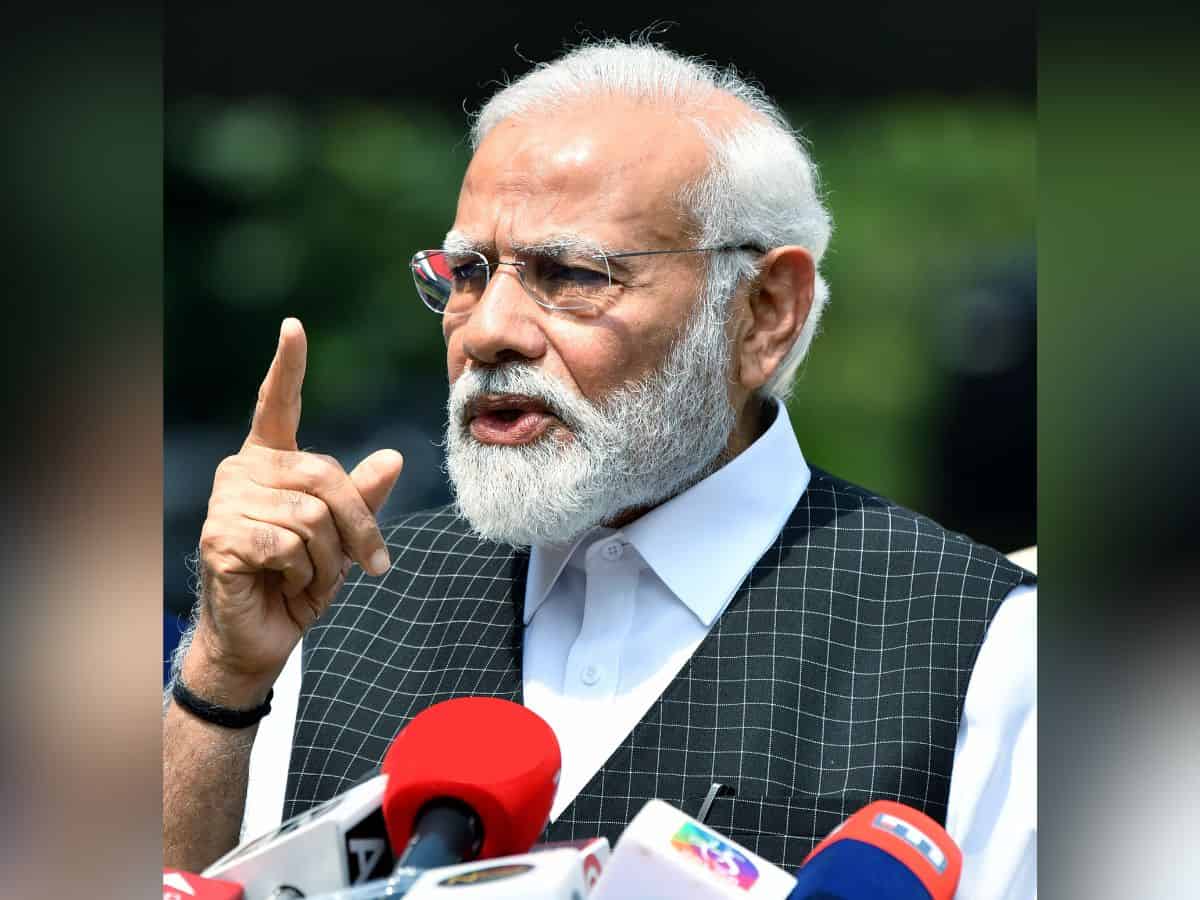
Kolkata: Prime Minister Narendra Modi on Saturday said the highest impact of corruption is borne by the poor and the marginalised and asserted it (corruption) affects resource utilization, distorts markets, impacts service delivery and ultimately diminishes people’s quality of life.
Addressing the G20 Anti-Corruption Ministerial Meet here via video conferencing, the PM cautioned against greed as it prevents “us from realising the truth.”
Addressing the gathering, the Prime Minister welcomed dignitaries to the city of Nobel Laureate Rabindranath Tagore. Referring to the writings of Tagore, Modi cautioned against greed as it prevents us from realising the truth.
He also touched upon the Upanishads that strive for Ma Gridha’, which translates to let there be no greed’.
Referring to Kautilya in Arthashastra, the PM said it is the government’s duty to enhance the state’s resources to maximize the welfare of its people.
“India has a strict policy of zero tolerance against corruption”, the Prime Minister remarked as he underlined that India is leveraging technology and e-governance to create a transparent and accountable ecosystem.
He mentioned that leakages and gaps in welfare schemes and government projects are being plugged. As a result, the Prime Minister said, hundreds of million people in India have received direct benefit transfers into their bank accounts amounting to more than 360 billion dollars and helping save over 33 billion dollars.
The Prime Minister informed that the government has simplified various procedures for businesses and gave the example of automation and digitization of government services that have eliminated rent-seeking opportunities.
“Our Government e-Marketplace, or GeM portal, has brought greater transparency in government procurement”, he added.
Speaking about the enactment of the Economic Offenders Act in 2018, the Prime Minister said the government is aggressively pursuing economic offenders and informed about the recovery of assets worth over 1.8 billion dollars from economic offenders and fugitives.
He also mentioned the Prevention of Money Laundering Act which has helped attach the assets of offenders worth more than 12 billion dollars since 2014.
The Prime Minister recalled speaking on the challenges of fugitive economic offenders for all G20 countries and the Global South in his very first G-20 Summit in 2014.
He also mentioned presenting a nine-point agenda for action against Fugitive Economic Offenders and Asset Recovery at the G-20 Summit in 2018 and expressed happiness that decisive steps are being taken by the working group.
Highlighting the importance of timely asset tracing and identification of proceeds of crime, the Prime Minister stressed the need to encourage countries to enhance their domestic asset recovery mechanisms.
Modi suggested that G20 countries can set an example by using non-conviction-based confiscations to expedite the recovery of foreign assets and said that it will ensure swift return and extradition of criminals after the due judicial process.
“It will send a strong signal about our joint fight against corruption”, he emphasized.
The Prime Minister asserted that the collective efforts of G20 nations can significantly support the fight against corruption and a huge difference can be made through enhanced international cooperation and implementation of robust measures that address the root causes of corruption.
Modi also highlighted the role of audit institutions in the fight against corruption.
Concluding the address, the Prime Minister urged the dignitaries to foster a culture of ethics and integrity in the value systems along with strengthening administrative and legal systems.
“Only by doing so, can we lay the foundation for a just and sustainable society. I wish you all a productive and successful meeting,” the Prime Minister concluded.
